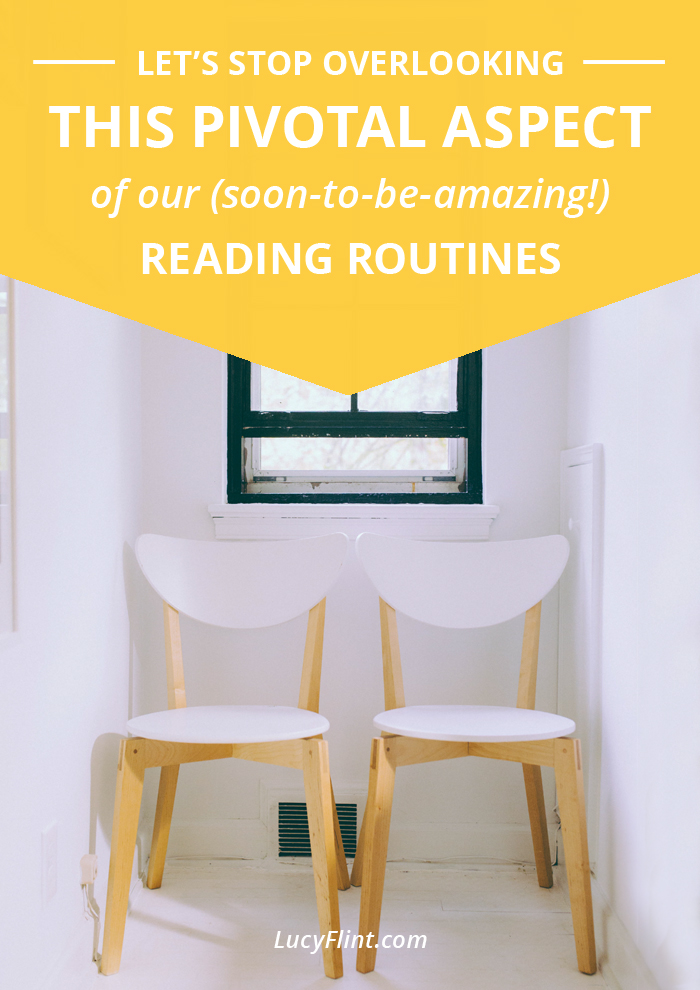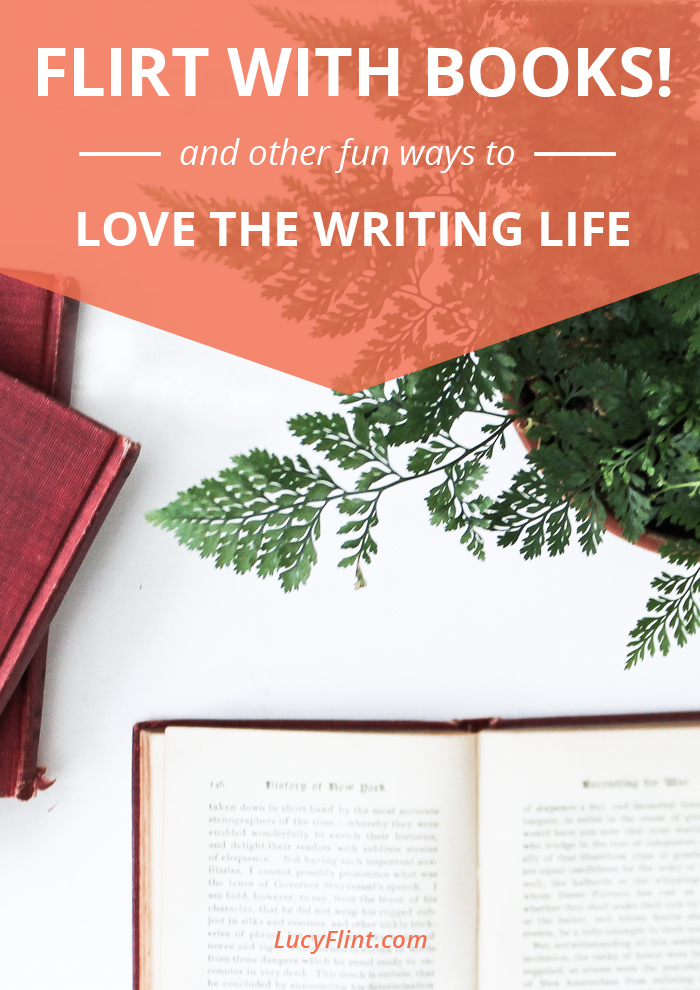Let's Stop Overlooking This Pivotal Aspect of Our (Soon-to-Be Amazing!) Reading Routines
/Sometimes, the most important parts of a routine are precisely the parts we consistently overlook.
So even though today's topic may seem like a silly, frivolous question to ask about our reading routines, I'm convinced that it's worth digging into.
And for those of us who struggle with getting to our reading, it could be a complete game-changer.
(Also? It just might be the yummiest part of this reading recess series. Ooooh. Gettin' excited.)
All right, lionhearts. So, we know that where we work, and the quality of the place where we write, has a bearing on how we FEEL about doing that work, right?
Our working environment is sending us a message. It might not even be a message we consciously notice—it's probably just under the radar.
But it is definitely telling us how we feel about ourselves as writers, how we feel about this work, and what our approach to writing is.
I keep coming back to this truth: that when my writing life feels out of whack, one of the questions I need to ask myself is, has my writing environment gone offline somehow?
It's an important question.
So... now I want to try something I've never done before. I want to apply that same question to reading.
For the first time basically ever, I want to ask the question: Where do I do most of my reading?
And, more importantly: What is that space communicating to me?
See, when I was working really hard to tell myself that reading really does count as work, I moved my reading to my writing desk. I sat upright, typed notes into my computer, elbows on the hard wooden surface.
Conscientious. Disciplined. Focused.
Um. Yes, it did feel like work...
TOO much like work.
So then I moved my reading practice to my bed. I sprawled among the pillows, covered up with a soft afghan...
annnnd I definitely fell asleep. More than once.
So this month, as I've been powering through fiction, I've felt a bit displaced. Nowhere feels quite right.
Hmm.
I've also been reading The Artist's Way, by Julia Cameron. (Which, like I've said before, you are going to hear MUCH more about later, because it is the most insanely brilliant thing ever and it is totally changing my life. It's AMAZING. I'm so thrilled.)
Ahem.
Anyway, Cameron keeps talking about how our artistic nature, our artistic self, is very much like a child.
Bright. Curious. Full of questions.
And also? Largely motivated by play. By joy. By enthusiasm.
What I keep finding out as I read, is that: Our artistic self loves to play and make messes. It does not so much love a life ruled by rigid, strict discipline.
HUH.
So—because Cameron's book has been right about SO MANY THINGS—I have to believe that this is true too.
And that's got me thinking.
I'm wondering about how to apply the child-like joy I used to feel about reading ... to my actual reading space.
Heh heh heh.
I'm getting super super excited about this. Like, I almost can't believe I'm thinking about it. But:
I'm considering making myself an all-out reading nook.
With yummy pillows and mosquito netting and heck, maybe even twinkle lights.
Maybe that sounds silly. Foolish.
But I know that reading is darned important. (Not to mention, it's basically half of my job description.)
And I know that I'm much more motivated by the idea of reading as play, as joy, as curiosity. That's how I read when I was a kid, when reading was fun and simple and easy.
So, I think it's time to appeal to that child version of me. And ask her what she wants.
And she says: "All of the pillows, and how about adding big cozy pouf? Also, yes to the netting, and are you kidding me, of COURSE the twinkle lights!!"
So that's my answer then.
Oooooh.
Well, that's going to be my project in the next couple of weeks. (I have a massively tight schedule for a week and a half, but then: I'm gonna rearrange some furniture and set this thing up!!)
Okay. I'm grinning ear to ear while I type this. I can't help it. Yeah, I'm over thirty years old, but what does that even have to do with it?
Why not have a totally scrumptious reading nook for myself?
... And what about you? Do you have an place that you tend to use for reading more than other places?
What does it say to you—about yourself as a reader, about the act of reading?
Does it invite you in? Or does it feel cold and strict?
When you think about a place to read, what's appealing for you? What makes you think, "HECK YES, I'm going to go read for an hour!"
Can you take a little time this week, and make your reading place a bit more intentional? Inviting?
What tweaks would it take, to make your reading area much more appealing?
If you want some crazy inspiration, I found three roundups of swoon-worthy reading nooks: here, here, and here!
I'd love to hear what you're going to do!! And I'll keep you posted on how my reading nook comes together.
I think it's gonna be very much worth it.
Reading report: Yes, I finished the second book of my challenge!! I was a little disappointed with the ending of Confessions of an Ugly Stepsister. I didn't feel like there was really enough satisfaction to the climax and conclusion. But there were still bits that I liked (especially how he developed the world of Haarlem). Most of all, the experience of reading itself was still worth it.
I've already plunged into my next book—one I've been looking forward to for a long time: Emmy and the Incredible Shrinking Rat, by Lynne Jonell. I read the third Emmy book awhile ago (not realizing it was part of a set!) and I loved it. So funny and charming. I've been looking forward to reading the first book in the set for a while.
Mmm! Nothing like a good middle grade adventure with a talking rat. Right up my alley. ;)













